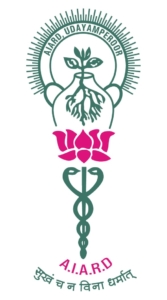Q 1. What is Ayurveda?
Ans: Ayurveda is one of the great gifts of the sages of ancient India to mankind. It is one of the oldest scientific medical systems in the world, with a long record of clinical experience. The word “Ayu” means all aspects of life from birth to death. The word “Veda” means knowledge or learning. Hence Ayurveda indicates the science by which life in its totality is understood.
Q 2. Ayurveda is said to be eternal. Why?
Ans: Ayurveda is the collection of principles of healthy living that evolved from the time of the appearance of man on earth. It is not liable to change at any time or at any point of the world. This healing system has been practiced in daily living in India for more than 5000 years. Ayurveda, first recorded in the Vedas, the world’s oldest collection of knowledge, is still the most favoured healthcare practice of millions of Indians. A system older than Greek and Egyptian medicine, it is now known to the wider world as a New Age medicine, proving its eternal significance.
Q 3. How is Ayurveda different from modern medicine?
Ans: Modern medicine tries to treat and remove symptoms rather than treating the patient suffering from it. This stems from the view that all people are more or less the same. Ayurveda makes special contributions by addressing the uniqueness of each patient and by helping each body to heal itself.
Q 4. Where is the root of Ayurveda?
Ans: The roots of Ayurveda can be traced to the beginning of cosmic creation. Indian philosophers state that Ayurveda originated from Brahma, the creator of the universe. Brahma is not a mere individual but the unmanifest form of the Divine Lord, from whom the whole manifest world comes into being. The desire to maintain fitness, health and longevity is one of the basic instincts of all creatures. Ayurveda in this respect sets the pattern for other system of medicine. It is a tradition with an antiquity comparable to that of life itself.
